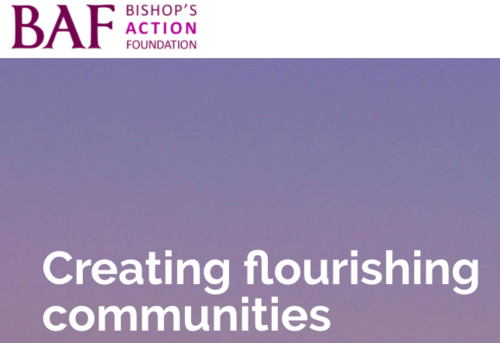Bishop's Action Foundation Sustainable Response Map
April Sustainability Champion
Each month we want to showcase a person, business, organisation or school in their phenomenal sustainability efforts. Email us if there is someone you would like to nominate.
This April, we'd like to recognise the Bishop’s Action Foundation (BAF) for their outstanding efforts in reducing their climate impact by implementing a Response Map. We hope these initiatives will serve as inspiration and a template for other businesses to use in our region.
Response Map
Carbon off-set for flights (we are part of the Anglican Church scheme which maps all NZ routes and contributes appropriate amounts to a sustainable forest scheme in Fiji to offset these emissions).
Use of zoom to minimise travel (we invested in a number of accounts across our team) – as one example CEO, Simon Cayley mapped the impact for his role:
o In 2018 I drove 35000km, in 2019 this was down to 21000 and I aim to reduce still further in 2020;
o In 2018 I made 36 flights, in 2019 that was down to 26, but for 2020 I am projecting less than 10 flights for the year.
Full recycling, but intentional aim to minimise plastic usage
Appropriate removal and recycling of e-waste
Move to cloud servers so less hardware and energy required
Support business sector to reutilise / refresh their old IT equipment by donating it to the NFP sector through our ICT Gateway programme
Recycled our old furniture to NFP entities
Food waste to pigs or into compost (zero food waste achieved)
Replaced old electric heating with heat pumps
Ground breaking mushrooms – innovative BAF led partnership using coffee grounds from cafes as base for growing mushrooms (divert coffee waste from landfill)
Replacing older lighting with LEDs
Use public transport when visiting Auckland and Wellington (not taxis)
Using local suppliers using local products for catering to minimise food miles
Increasing staff awareness of where changes and gains can be made
Flexible working conditions
Reusable cups for workshops (Wheelhouse) and for staff (no single use coffee cups).
Further ideas to improve BAF’s response and these include:
Bike shed/cover and possible incentives for cycling
Staff member’s plant native trees on site
Look at adding an electric vehicle to the fleet for around NP
Solar panels in future
Ensure all BAF suppliers are working towards a climate response
Increase our awareness of when we could / should be using our credibility to be politically active / advocating and when we can challenge behaviour we see

